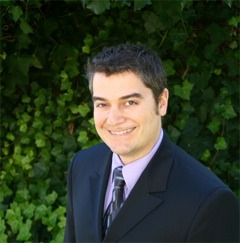The Best Book Writing Advice for Nonfiction Authors

In this article, you’ll learn the best book writing advice available for new nonfiction authors. You’ll learn how to develop consistent motivation, how to ensure quality writing throughout your book project and how to get to the finish line with a product to be proud of.
1- Set a Firm Publishing Deadline
When it comes to writing nonfiction books, one of the hardest things for authors to do is to achieve a consistent level of motivation throughout the project.
While time always seems to fly at the beginning, driven by the excitement of writing a new book, things can become more complicated as the writing drags on and you reach the dreaded “middle” of the book.
This is the place where most authors lose steam and become demotivated. In fact, it’s estimated that 97% of people who start books don’t publish them, with many giving up halfway through.
So, how can you keep yourself out of this conundrum? By learning from the pros.
Let me explain: traditionally published authors are required to sign a publishing agreement, part of which sets a clear timeline to deliver a manuscript.
Since they’re legally bound to a deadline, they don’t have much of a choice when it comes to finding motivation when they don’t feel like writing, because there are clear negative consequences to their inaction.
This is what you have to emulate in your own book project. By self-publishing, you won’t be subject to a deadline, unless you impose one yourself. How? By scheduling an event with a firm date a year from now where you’ll be unveiling your book.
Examples of Firm Deadlines
Here are some examples of events you can arrange for your book:
- A public-speaking engagement with a professional or trade association
- A seasonal event in your industry
- A trade show panel or workshop
- A conference
- A professional gathering
In some of the above cases you’ll have to sign an agreement, especially if there are speaking fees involved, so you’ll be in the same boat as professional authors.
And even if you’re not required to sign a formal agreement, now you have a public commitment to fulfill with a third party. That’ll become the driver for your motivation to complete your project within the right time frame.
2- Write Every Day
Book writing, like any other creative endeavor, requires practice in order to get good at it.
In the same way that sustained practice with a musical instrument allows you to develop the muscle memory necessary to play it with mastery, sustained writing practice allows you to develop the writing muscle required to produce quality content at speed.
If you want to succeed as a nonfiction writer, then you need to train like the pros train. Even when they’ve been around for decades, professional writers still schedule time to write every day.
Why? Because, like any other muscle, the writing muscle needs to be exercised continuously to remain conditioned. This involves a period of exercise (a daily writing block of time) balanced by a period of rest and recovery.
Writing sporadically won’t allow your writing muscle to develop and, at the other end of the spectrum, going on writing marathons will lead to creative exhaustion.
The best balance is to find a length of time every day that’s sufficient for exercising your writing muscle but that also takes into account your other responsibilities in work and life.
The ideal daily block of time for a new nonfiction author is two hours, 6 days a week.
How Long Will It Take You to Write a Book?
At this rate, and making sure you don’t have any distractions, you’ll be able to produce between 400 and 500 words per hour of raw (unedited) text, or between 800 and 1,000 words per day.
If you write six days per week, you’ll be producing between 4,800 and 6,000 words per week.
If you’re aiming for a 50,000 book (approximately 200-pages long if you include images and other graphical elements), then you’ll require between 8.5 and 10.5 weeks to do all your raw writing.
Then you should double this amount to take care of self-editing and rewrites plus time to allow for holidays, illness, etc., and you’ll be now in the 17-21 week range, or approximately 4-5 months.
Beyond this range, you’ll need to allocate time for a professional edit and book production (typically another 4-5 months).
3- Protect Your Writing Time

The creative writing process requires a quiet environment. If you get regularly interrupted by either people or electronic devices, you’ll never be able to achieve cruising speed.
For thoughts to become ideas and for ideas to flow from your mind to the page, you need a continuous stretch of peace and quiet. Once you choose your 2-hour daily writing block, you’re going to have to take measures to protect it.
First off, you’ll need to enlist those around you to support your project by not interrupting you during your two-hour writing block, save for an emergency.
Any phone calls need to go to voice mail or be handled by someone else. You also have to refrain from checking, reading or answering any email, text messages, or any other type of direct communications.
For this purpose, you’ll need to mute all your electronic devices for the duration of your writing block so that you’re not disturbed by the sounds of notifications. Also, you’ll have to refrain from going online during this time.
Your writing time is strictly for writing, not for researching. Any type of online activity must be conducted outside of these hours. If you do need to check up on something that you’re writing about, make a note to do it later.
Why? Because the unending character of Internet searches makes it a rabbit hole, and it doesn’t take much for a five-minute search to extend to twenty minutes, or worse yet an hour, and all of a sudden half of your writing block is wasted.
Ideal Places to Write Your Book
Now let’s talk about your writing place. You may prefer the intimacy of a private location or perhaps you get more inspiration from a public space. Either is good, just make sure that whatever place you choose brings you an underlying sense of joy.
You want to use a space that’s conducive to creativity. For instance, having a nice view out of the window helps, or perhaps you have a favorite spot in the house you enjoy spending time in.
For those who like the outdoors, some people enjoy writing from a park bench or from the botanical gardens or other type of public gardens if there’s one near where you live. Some other people enjoy writing at their favorite coffee shop.
Once again, any place is good, provided that it brings you a sense of joy.
4- Assemble an Advance Reader Group
This is one of the best pieces of advice for nonfiction book writers: don’t write in isolation. Remember that you’re not writing a book for yourself but for your target audience, therefore it’s wise to enlist their help to give you feedback as you write your manuscript.
How? By assembling an advance reader group before you start writing. You’ll need to tap into your network to recruit these members from your target audience.
You don’t want to include your own family members or close friends in this group, but family and friends of your friends is okay. You’ll want between 5 and 10 people that are preferably at arms-length from you, but people that you can trust will commit to your book project.
You should thank them by giving them a signed copy of your printed book as soon as it comes out, and mention their name with some kind words in your acknowledgments.
The advance reading process is quite simple. Just email your readers a pdf of each chapter in your manuscript as soon as you finish it and ask them to give you feedback.
Then you need to take their feedback and implement the best ideas. Sometimes you’ll get a great comment from an individual and sometimes you’ll see a consensus pointing out the same issue. Use your best judgment – you’ll learn as you go.
Why not wait until your manuscript is finished before soliciting feedback? Because you want to ensure that every chapter resonates with your target audience.
You don’t want to finish all your writing only to find out then that in the middle of chapter 3 people started tuning out, forcing you to rewrite three quarters of your book in order to bring it back into alignment with your audience.
Your advance reading group may take some time to assemble, but it’ll be one of the best things you can do for your book.
5- Have Your Manuscript Professionally Edited
The final piece of book writing advice is to have your manuscript professionally edited. Every professional nonfiction author has an editor and so should you.
An expert nonfiction editor will help you not only gain perspective on your writing by bringing in a fresh pair of eyes, but they’ll also know the best practices for communicating effectively with nonfiction audiences.
They’ll know from experience what works for them and what doesn’t, helping you reshape your flow of ideas to pack more punch for your audience.
They’ll do all of the above in addition to making sure that your grammar and syntax is correct and that your text doesn’t contain typos.
Now, nonfiction editing is composed of a number of stages. Some editors may be able to perform all stages, but more often than not you may be required to hire different specialists.
The 4 Stages of Nonfiction Editing
Below, you’ll learn about the four stages of nonfiction editing, beginning at the highest structural level and ending with a final word-by-word quality check:
- Developmental Editing: This editing pass looks at the overall structure of your book. Its goal is to ensure that your message is being successfully delivered to your target audience.
- Content Editing: This editing pass has more to do with readability than structure. It ensures that paragraphs and sentences in your manuscript are well-constructed and that the flow of your ideas is clear.
- Copyediting: This editing pass is required to make certain that you’re using accurate language in your manuscript with no spelling, punctuation, capitalization, syntax or grammatical errors.
- Proofreading: This editing pass is the fine-tooth comb check that catches any typos that were missed in all prior stages to ensure your book is error-free before going to print.
Next Steps
Nonfiction book publishing is a very rewarding endeavor if done right, but it can become very frustrating if you don’t follow the best practices. The above advice will set you on the right path and make sure that you build a strong foundation.
To build further on that foundation, I’ve written a number of companion articles that’ll guide you through the publishing process and help you avoid costly mistakes:
- “How to Write a Compelling Book in 12 Steps: A Must-Read Guide for Nonfiction Authors”
- “The 10 Must-Have Writing Skills for Entrepreneurial Authors”
- “The 7 Most Effective Writing Strategies for Entrepreneurial Authors”
Best of luck on this exciting journey!
If you enjoyed this article and are in the process of writing a nonfiction book, be sure to check out my free nonfiction success guide, drawn from years of experience editing books for bestselling authors (including a New York Times bestseller) and ghostwriting for CEOs and politicians. Simply click here to get instant access.
Ben
Leave me a comment below if you have any questions or a specific need that I can help you address – I operate an author services firm that specializes in helping entrepreneurs, professionals and business owners who want to publish books as a calling card for prospects, to establish their status as an expert or to just to generate additional leads for their businesses.
Here are some related posts I highly recommend:
How to Grow Your Business Writing a Nonfiction Book
How Long Does it Take to Write a Book to Help Grow Your Business?
How to Become a Great Book Writer in Business Nonfiction
The 7 Key Rules for Writers of Outstanding Nonfiction Books
Learn 10 Powerful Writing Habits to Fast Track Your Nonfiction Book

Bennett R. Coles is an award-winning author of six books published through Harper Collins (New York) and Titan Publishing Group (London). He is also the publisher at Promontory Press, editor for multiple bestselling authors (including a NY Times bestseller), ghostwriter for CEOs and politicians and the founder of Cascadia Author Services, a boutique full-service firm that specializes in premium author services specifically designed for busy professionals. Our end-to-end services include writer coaching, ghostwriting, editing, proofing, cover design, book layout, eBook production, marketing, printing and distribution.
-
Thank you for sharing you skills and knowledge. They should prove to be very beneficial.







Leave a Reply